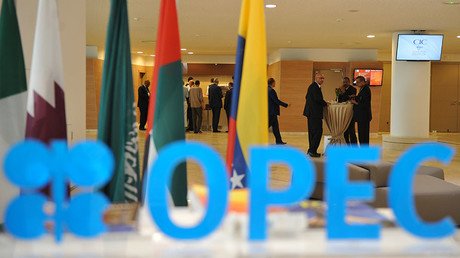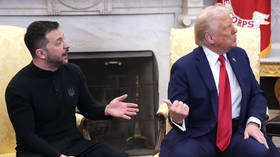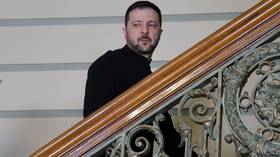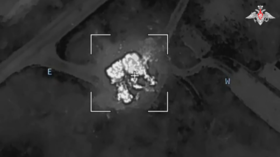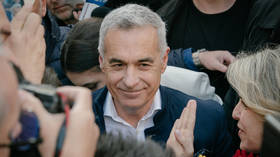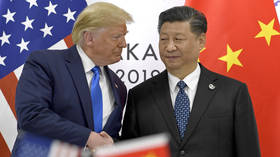Putin ‘directly involved’ in OPEC reaching production cut deal
Russian President Vladimir Putin played an active part in bringing about the OPEC deal to cut oil production, the vice president of Russian energy giant Lukoil said. Earlier, Reuters reported that Putin “helped OPEC rivals Iran and Saudi Arabia set aside differences.”
“The [OPEC] negotiations were quite difficult, perhaps ever since the beginning of 2016. I want to express enormous gratitude to our president, Vladimir Putin, as he has been directly involved in reaching the solution, [which] is extremely important for our country and for oil producers,” Leonid Fedun said in an interview with TV channel Rossiya 24.
Earlier on Friday, Reuters said in an exclusive report that Putin’s part in facilitating the OPEC agreement had been “crucial.”
Citing its sources, the news agency reported that Putin’s actions helped smooth the way for the deal as he acted “as intermediary” between Riyadh and Tehran.
In September, the Russian president met with Saudi Deputy Crown Prince Mohammed bin Salman on the sidelines of the G20 gathering in China. The two agreed to join forces to help global markets remove the glut of oil that has led to prices almost halving since 2014, dealing a heavy blow to both Russian and Saudi oil revenues.
The same month, at a meeting in Algiers, OPEC agreed in principle to reduce oil output for the first time since the 2008 financial crisis.
However, the September agreement did not specify individual commitments and production levels for each member country. These were eventually finalized at an OPEC meeting in Vienna on Wednesday, when the organization pledged to slash output by 1.2 million barrels per day (bpd), to 32.5 million.
Previous talks on the issue had failed due to arguments between de facto cartel leader Saudi Arabia and its third-largest producer, Iran.
READ MORE: Oil prices surge as OPEC reaches deal to cut production by 1.2 million barrels
The Saudis had long insisted that Iran comply with the demand to cut production along with other exporters, while Tehran had continued to insist it should be allowed to restore output, as much of it had been lost during the years the country had spent under Western sanctions.
In line with this view, Tehran in October opened three more oil fields, producing more than 220,000 barrels per day, as it continued to push output to pre-sanctions levels.
Conflicts in Syria and Yemen have not helped relations between the Sunni kingdom and the Shiite Islamic Republic, and reports state that Saudi and Iranian OPEC negotiators had argued all through the run-up to Wednesday’s meeting. Two days prior to the Vienna gathering, Riyadh warned it would back out of the deal, threatening to boost production if Iran failed to contribute cuts.
But according to Reuters, this is where the Russian leader stepped in. Citing a source close to Iranian Supreme Leader Ayatollah Ali Khamenei, the outlet reports that Putin discussed the deal in a phone conversation with Iranian President Hassan Rouhani. After the call, Rouhani and Iranian Oil Minister Bijan Zanganeh turned to the Ayatollah to explain their strategy, and subsequently received approval.
Reuters has speculated that Putin’s idea was that the deal was possible if “Riyadh wasn't seen to be making too large a concession to Iran,” and if Tehran was careful not to celebrate any perceived victory.
On Wednesday, Saudi Arabia agreed to cut production by 486,000 barrels per day, while Iraq and Kuwait will reduce supplies by 209,000 bpd and 130,000 bpd respectively. Iran, however, has been allowed to slightly increase its output.
Reuters reported that Iran's oil minister kept a low profile during the meeting, and “avoided any comment that might be read as claiming victory over Riyadh.”
The production cut will be applied for six months, from January 2017, with a review scheduled for an OPEC meeting in May. The agreement also expects non-OPEC countries to cut production by about 600,000 bpd in total. Russia, the biggest non-OPEC producer, did not participate in Wednesday’s meeting, but also committed to cut oil production by 300,000 bpd, conference president Mohammed bin Saleh al-Sada announced. Russian Energy Minister Aleksandr Novak welcomed the OPEC decision, saying Moscow would contribute its part if the organization keeps to its commitments.
Russia and OPEC are currently discussing the time and place for talks on the deal with non-OPEC nations. According to Bloomberg, citing a “person familiar with the matter,” these may be held in Moscow on December 10. Citing two OPEC sources, Reuters also reported that the meeting will be held on December 10 in the Russian capital.
